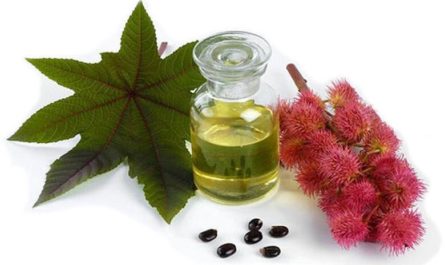Pineapple is a juicy, tropical fruit that is not only delicious but also packed with numerous health benefits. It is a good source of essential vitamins, minerals, and enzymes that can improve your overall health and well-being. From boosting your immune system to promoting healthy digestion, pineapple has a lot to offer. In this article, we’ll take a closer look at some of the most significant health benefits of eating pineapple.
What is Pineapple?
Pineapple is a tropical fruit that is native to South America. It is a juicy and sweet fruit that is consumed worldwide. Pineapples have a tough and spiky exterior with sweet, yellowish flesh inside. They are a good source of fiber, vitamins, and minerals, including vitamins C, B6, potassium, and manganese.
Pineapples are also rich in bromelain, an enzyme that can aid digestion and has anti-inflammatory properties. Pineapple can be eaten fresh, canned, or dried and is used in many culinary dishes, such as smoothies, desserts, and savory dishes.

Nutritional Value of Pineapple
One cup of pineapple chunks (165 grams) contains the following nutrients:
- Calories: 82
- Carbohydrates: 21.7 grams
- Fiber: 2.3 grams
- Protein: 0.9 grams
- Fat: 0.2 grams
- Vitamin C: 131% of the Daily Value (DV)
- Vitamin B6: 9% of the DV
- Potassium: 5% of the DV
- Magnesium: 4% of the DV
Pineapple is also a good source of bromelain, a mixture of enzymes that can break down protein molecules in our bodies.
Nutrition Facts of Pineapple
- Vitamin C: Pineapple is a great source of vitamin C, an antioxidant that helps protect cells from damage, supports immune system function, and helps the body absorb iron.
- Manganese: Pineapple also contains manganese, an essential mineral that plays a key role in bone health, wound healing, and metabolism. It’s important for the development and maintenance of strong bones and connective tissue.
- Fiber: Pineapple is rich in fiber, which is important for digestive health. Fiber helps to keep the digestive system moving and can help lower cholesterol levels.
- B vitamins: Pineapple contains several B vitamins, including thiamin, riboflavin, niacin, vitamin B6, and folate. These vitamins are essential for energy production and brain function.
- Various minerals: Besides manganese, pineapple contains other minerals such as potassium, magnesium, and copper.
16 Amazing Health Benefits of Pineapple
1. Reduce Inflammation
Inflammation is the body’s natural response to injury or infection, but chronic inflammation can lead to various diseases such as arthritis, heart disease, and cancer. Pineapple contains bromelain, an enzyme that has anti-inflammatory properties and can help reduce inflammation in the body.
Several studies have shown that bromelain can effectively reduce inflammation in various conditions, such as osteoarthritis, rheumatoid arthritis, and sports injuries. Bromelain works by reducing the production of pro-inflammatory cytokines and enzymes that cause inflammation.
Aside from bromelain, pineapple also contains other nutrients such as vitamin C and beta-carotene that have antioxidant properties, which can also help reduce inflammation in the body.
2. Help Lower Blood Pressure
Pineapple is a good source of potassium, which is an essential mineral that helps regulate blood pressure. Potassium helps counteract the effects of sodium, which can raise blood pressure. Eating potassium-rich foods like pineapple can help maintain a healthy balance of these minerals.
In addition to potassium, pineapple contains other nutrients to help lower blood pressure. For example, fruit is a good source of fiber, which can help reduce cholesterol levels in the blood, another risk factor for heart disease.
Pineapple also contains the enzyme bromelain, which has been found to have blood-thinning properties. This may help improve circulation and reduce the risk of blood clots contributing to high blood pressure and cardiovascular disease. (source )
3. Aid in Digestion
One of the benefits of pineapple is its high content of fiber and water, which can help promote regular bowel movements and prevent constipation. Fiber adds bulk to the stool, making it easier to pass through the digestive system, while water helps soften the stool, making it easier to pass.
Pineapple also contains an enzyme called bromelain, which helps break down protein in the digestive system. This can improve the digestion and absorption of protein-rich foods, such as meat and dairy products.
In addition, a study found that bromelain improved digestion and reduced bloating in participants with indigestion. (source)
4. Improve Heart Health
One of the reasons pineapple may be beneficial for heart health is its high content of antioxidants, including vitamin C and beta-carotene. These antioxidants help neutralize free radicals, which can damage cells and contribute to the development of heart disease.
Additionally, pineapple is a good source of potassium, a mineral that helps regulate blood pressure. High blood pressure is a major risk factor for heart disease, so consuming potassium-rich foods like pineapple may help lower the risk of developing heart disease.
5. Reduce the Risk of Blood Clots
Blood clots are a serious health concern that can lead to heart attack, stroke, and other complications. Fortunately, pineapple may help reduce the risk of blood clots.
Pineapple contains an enzyme called bromelain, which has been found to have blood-thinning properties. This means that it can help prevent blood clots from forming by breaking down fibrin, a protein that plays a key role in blood clot formation.
In addition to bromelain, pineapple is also a good source of vitamin C and other antioxidants, which can help prevent the oxidation of cholesterol in the blood. (source )
6. Improve Fertility
Infertility is a common issue that affects many couples. While many factors can contribute to infertility, diet may play a role. Pineapple is a fruit rich in nutrients that may help improve fertility in both men and women.
Pineapple contains an enzyme called bromelain, which has been found to have anti-inflammatory properties. Chronic inflammation in the reproductive organs can contribute to infertility, so consuming bromelain may help reduce inflammation and improve fertility.
In addition to bromelain, pineapple is also a good source of vitamin C, which has been shown to improve sperm quality in men. Vitamin C is an antioxidant that can help protect sperm cells from damage and improve their motility. (source )
7. Help Manage Asthma
Asthma is a chronic respiratory condition that can cause difficulty breathing, wheezing, and coughing.
Pineapple contains an enzyme called bromelain, which has been found to have anti-inflammatory properties. Inflammation in the airways is a major contributor to asthma symptoms, so consuming bromelain may help reduce inflammation and improve breathing.
Moreover, pineapple is a good source of vitamin C, which has been shown to have a positive effect on lung function. Vitamin C is an antioxidant that can help reduce oxidative stress in the lungs, exacerbating asthma symptoms. (source)
8. May Improve Bone Health
Pineapple contains manganese, a mineral that is important for bone health. Manganese helps to build strong bones and can also help reduce the risk of osteoporosis.
In addition, Pineapple contains several important minerals for maintaining strong and healthy bones, including calcium, magnesium, and manganese.
Studies have shown that increasing the intake of these minerals may help improve bone density and reduce the risk of osteoporosis (source ).

9. Aid in Weight Loss
Pineapple is a delicious and nutritious fruit that may help promote weight loss Pineapple is relatively low in calories compared to other fruits. One cup of pineapple chunks contains only 82 calories, making it a great snack for those trying to lose weight.
In addition, Pineapple is also high in fiber, which can help you feel full and satisfied for longer periods of time. This can help reduce your overall calorie intake, leading to weight loss over time.
The enzyme bromelain in Pineapple has been found to have anti-inflammatory properties. Inflammation can contribute to weight gain, so consuming bromelain may help reduce inflammation and promote weight loss. (source)
10. Supports Eye Health
11. Aids in Wound Healing
Pineapple is a delicious and nutritious fruit that may also benefit wound healing. Pineapple contains an enzyme called bromelain, which has been found to have anti-inflammatory and anti-bacterial properties.
Bromelain can help reduce inflammation and swelling around the wound, promoting healing. It can also help prevent infection by breaking down the biofilm bacteria use to protect themselves.
In addtion, Pineapple is also high in vitamin C, which is important for wound healing. Vitamin C is necessary for the production of collagen, an essential component of skin, and helps with the healing process.
12. Boosts Immune System
Pineapple is rich in vitamin C, a powerful antioxidant that can help boost the immune system and protect against infections.
One cup of pineapple contains 78.9 mg of vitamin C, which is more than the daily recommended intake for most adults. Additionally, pineapple also contains other antioxidants like beta-carotene, which may also contribute to its immune-boosting effects (source).
13. Reduces Risk of Cancer
Some studies have suggested that the antioxidants and anti-inflammatory compounds found in pineapple may help reduce the risk of certain types of cancer, including colon, breast, and prostate cancer.
Pineapple also contains beta-carotene and other antioxidants that can protect against oxidative stress and DNA damage. A study found that consuming pineapple and other fruits high in beta-carotene can reduce the risk of lung cancer.
Additionally, the high vitamin C content in pineapple may also help protect against cancer development.

14. Promotes Healthy Skin
Pineapple is a good source of vitamin C, which is essential for the synthesis of collagen – a protein that plays a key role in maintaining the health of skin and other connective tissues.
In addition, pineapple also contains antioxidants that can help protect the skin against damage from UV rays and other environmental stressors (source).
15. Regulates blood sugar
Pineapple contains an enzyme called bromelain, which has been shown to improve glucose tolerance and regulate blood sugar levels.
Additionally, pineapple is a good source of dietary fiber, which can also help stabilize blood sugar levels by slowing down glucose absorption in the bloodstream.
However, it’s important to consume pineapple in moderation, as it does contain natural sugars and can cause a spike in blood sugar if consumed in large amounts.
16. Reducing Menstrual Cramps
Menstrual cramps, or dysmenorrhea, can be quite uncomfortable for women during their menstrual cycle. However, pineapple may relieve menstrual cramps due to its anti-inflammatory properties.
The bromelain enzyme in pineapple has been found to have anti-inflammatory properties that can help reduce inflammation and pain associated with menstrual cramps.
Some studies have shown that bromelain may be as effective as nonsteroidal anti-inflammatory drugs (NSAIDs) in reducing menstrual pain.
How to Incorporate Pineapple in Your Diet?
There are many ways to incorporate pineapple into your diet. Here are some ideas:
- Add pineapple to your breakfast smoothie or oatmeal for a sweet and tropical twist.
- Grill or bake pineapple as a sweet and savory side dish.
- Use pineapple in a fruit salad or topping for yogurt or ice cream.
- Make a tropical salsa with pineapple, mango, and jalapeno for a spicy kick.
- Use pineapple as a topping for grilled chicken or fish for a delicious and healthy meal.
Pineapple is a versatile fruit that can be enjoyed in many different ways. Its sweet and tangy flavor makes it a great addition to sweet and savory dishes.
Precautions when consuming Pineapple
While pineapple is generally considered a healthy and nutritious food, there are some precautions to keep in mind when consuming it:
1. Allergies
Some people may be allergic to pineapple or bromelain, a compound found in pineapple. Symptoms of an allergic reaction can include hives, itching, swelling, and difficulty breathing.
2. Digestive Issues
Pineapple contains high levels of natural sugars and fiber, which can be difficult for some people to digest. Eating too much pineapple can cause bloating, diarrhea, and other digestive issues.
3. Medication Interactions
Bromelain, the enzyme found in pineapple, can interact with certain medications, including blood thinners, antibiotics, and antidepressants. If you are taking any medications, it’s important to speak with your healthcare provider before consuming large amounts of pineapple or bromelain supplements.
4. Skin Irritation
Pineapple contains a high level of acidity, which can cause skin irritation or a rash in some people. If you experience skin irritation after handling or consuming pineapple, wash the affected area with soap and water and seek medical attention if necessary.
Conclusion
Pineapple is a delicious and nutritious fruit that can provide many health benefits. It is rich in nutrients, antioxidants, and enzymes that can help boost immunity, reduce inflammation, and enhance heart health. So next time you are looking for a healthy snack, consider adding pineapple to your diet.






